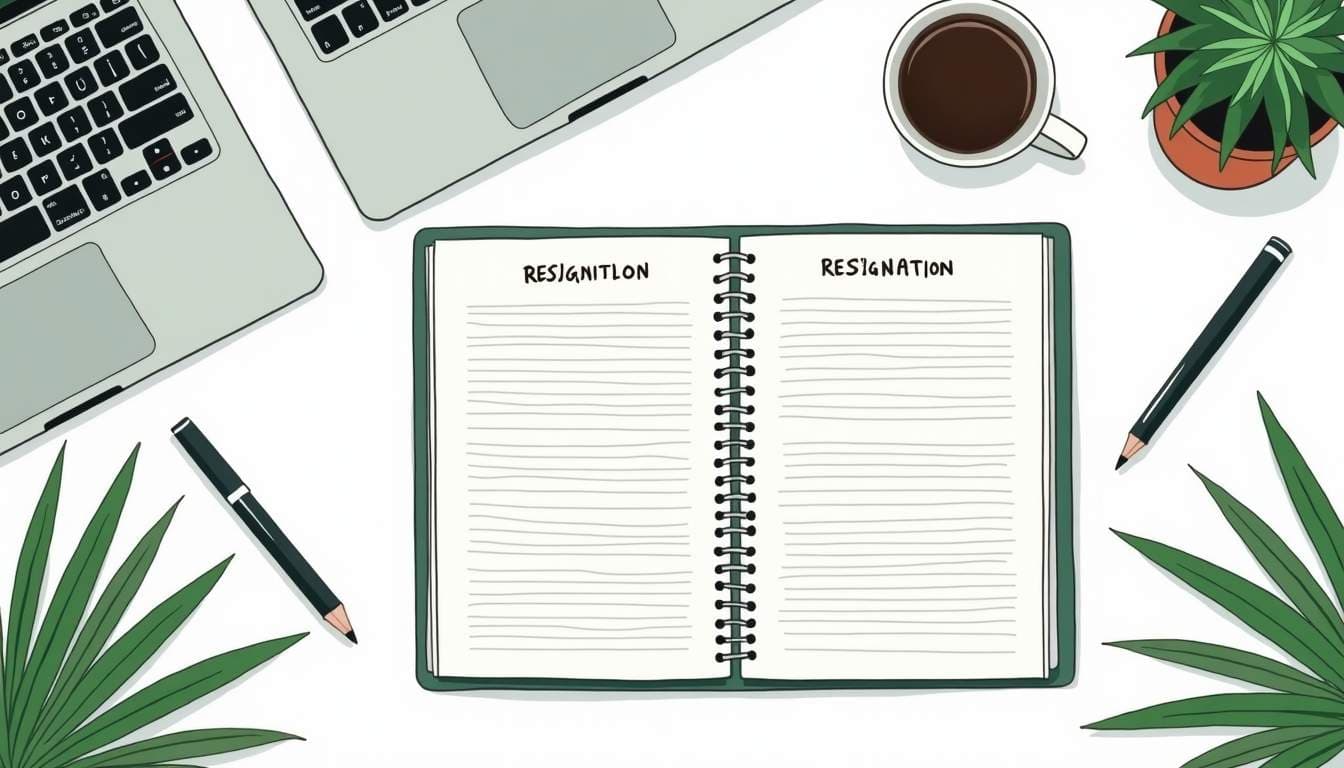Deciding to leave a job can be both exciting and challenging. Whether you’re moving on to a new opportunity, seeking a better work environment, or simply ready for a change, the way you resign can have a lasting impact on your professional reputation. One of the most important steps in this process is crafting a professional resignation letter. This document not only serves as formal notice but also becomes part of your employment record, reflecting your professionalism and respect for your employer.
Why a Well-Written Resignation Letter Matters
In recent years, job resignations have reached record highs. In 2021 alone, 47.8 million workers quit their jobs, surpassing the 2019 total of 42.1 million. This surge highlights a growing trend in workforce mobility, but it also underscores the importance of managing transitions thoughtfully.
Resignation letters are more than just a formality. According to Pat Roque, a culture and career strategist, a resignation letter "is a required document that becomes part of your employee records." This means your letter is a permanent reflection of your professionalism and attitude toward your employer. Handling your resignation with grace can help preserve relationships and open doors for future opportunities.
Moreover, a poorly handled resignation can lead to regrets. Nearly 40% of professionals report regretting their exit due to the way they resigned. A clear, polite, and well-structured resignation letter can help avoid such pitfalls.
In addition to preserving relationships, a well-crafted resignation letter can serve as a valuable tool for networking in the future. The professional world is often smaller than it seems, and the connections you make during your time at a company can have lasting effects on your career. By leaving on good terms, you increase the likelihood of receiving positive references and recommendations down the line. Furthermore, you may find that former colleagues become allies in your career journey, offering insights or opportunities that could benefit you in your next role.
It's also important to consider the emotional impact of a resignation letter, both on yourself and your employer. Writing a thoughtful letter allows you to reflect on your experiences, articulate your reasons for leaving, and express gratitude for the opportunities you've had. This can provide closure for you and your team, allowing everyone to move forward positively. Employers often appreciate when employees take the time to communicate their decisions respectfully, which can foster a culture of open dialogue and mutual respect within the organization.
Essential Elements of a Professional Resignation Letter
Understanding what to include in your resignation letter is key to making a positive impression. Experts and industry guidelines converge on several core components that every resignation letter should have.
1. Heading and Contact Information
Start your letter with your full name, address, phone number, and email at the top. Below that, include the date and your employer’s name and address. This formal heading sets a professional tone and ensures the letter is properly documented. Including your contact information also allows for easy communication should your employer need to reach you after your departure.
2. Formal Salutation
Address your letter to your immediate supervisor or manager using a formal greeting such as “Dear [Manager’s Name],”. This personalizes the letter while maintaining professionalism. If you have a close working relationship with your manager, you might consider a slightly warmer greeting, but it’s best to err on the side of formality in written communications.
3. Clear Statement of Resignation
State your intention to resign clearly and directly. For example, “I am writing to formally resign from my position as [Your Job Title] at [Company Name].” This removes any ambiguity about your decision. Being straightforward not only respects your employer’s time but also reinforces your professionalism during this transition.
4. Notice Period
Include the effective date of your resignation and specify your last working day. Most professionals provide at least two weeks’ notice, which is widely considered standard practice. J.T. O'Donnell, founder of WorkItDaily, emphasizes the importance of mentioning your availability during this transition period. This gives your employer adequate time to plan for your departure and demonstrates your commitment to a seamless handover.
5. Expression of Gratitude
Regardless of your experience, it’s courteous to thank your employer for the opportunities you’ve had. A polite note of appreciation helps maintain goodwill and leaves a positive impression. You might mention specific projects or experiences that were particularly meaningful, which can add a personal touch to your gratitude and highlight the positive aspects of your time at the company.




![Cover Letter vs Resume: What Hiring Managers Actually Read First [2026]](/_next/image?url=%2Fapi%2Fmedia%2Ffile%2Fcoverletterandresume.png&w=3840&q=75)